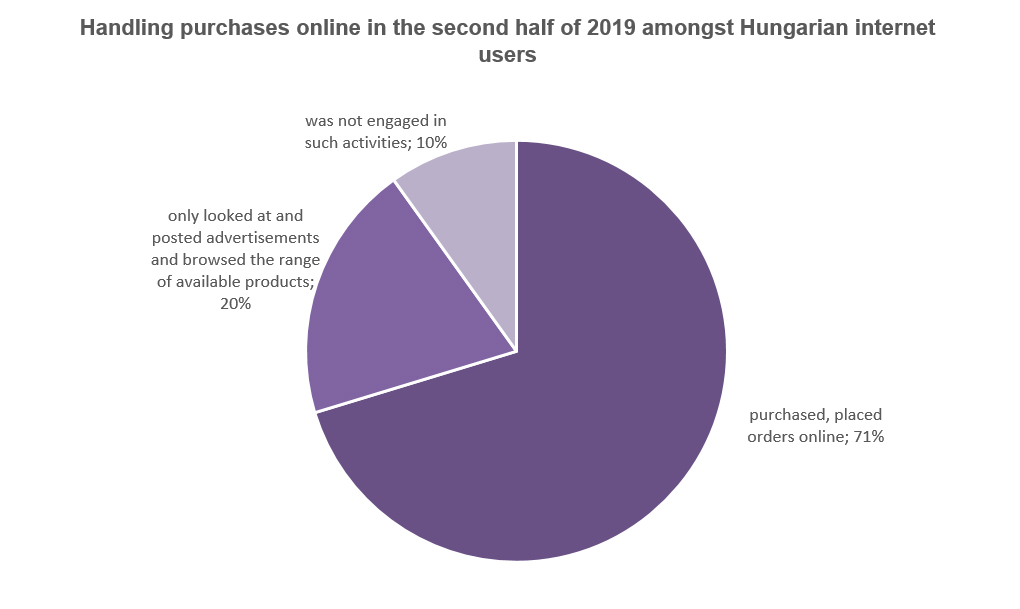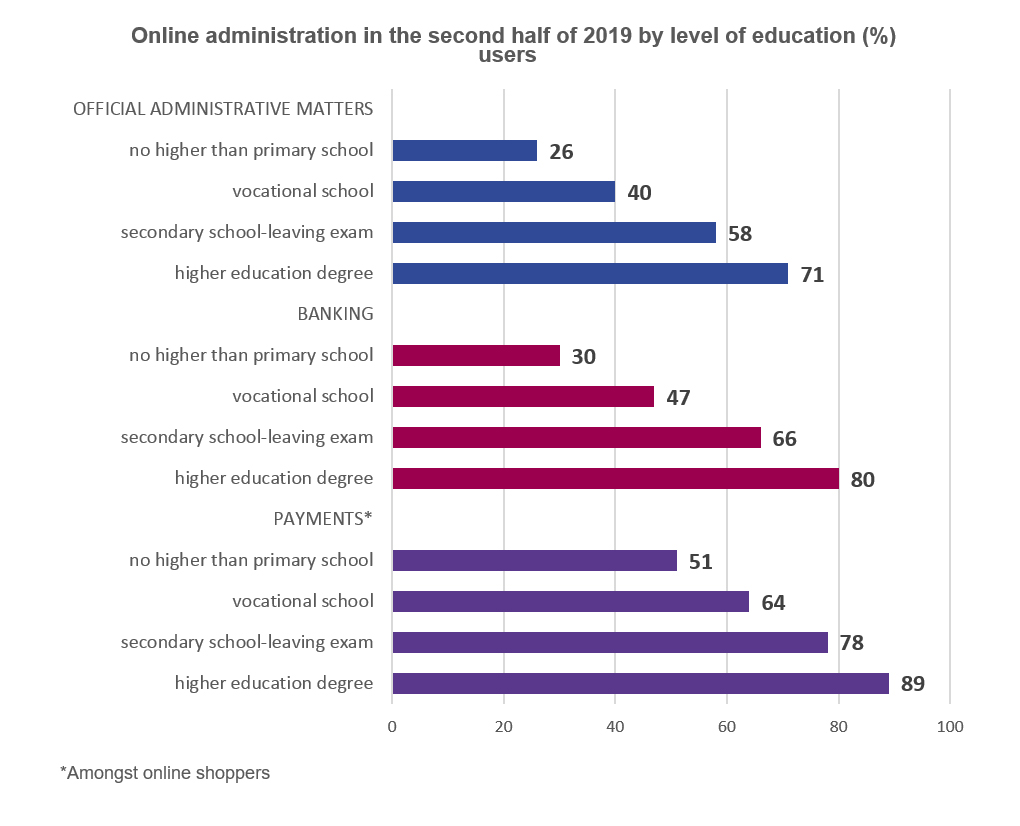NMHH survey: seventy per cent of internet users shop online
The findings of the National Media and Infocommunications Authority’s (NMHH) market research show that Hungarians have already been regularly using the internet for various administrative matters prior to the pandemic. Online shopping and related activities are the most common—seven out of ten internet users have made some form of purchase on the World Wide Web. However, banking, handling official administrative matters and payments are still greatly dependent on level of skill and education.
Subsequent to the appearance of the coronavirus in Hungary and the introduction of curfew restrictions, there was a great increase in the demand for digital shopping, payments and administration. The latest NMHH survey in the subject was prepared between November and December 2019, yet the statistics show that large sections of the population were not caught off guard by the transition to digital administration. This is supported by the fact that at the end of 2019, 6.5 million people in Hungary used the internet on a weekly basis, practically all of whom—93 per cent—had some command of resolving everyday issues online.
Half of internet users handle official administrative matters online
The survey covered four fields amongst the Hungarian population aged 16 and over: shopping and related activities, banking, official administrative measures and payment. Of these fields, shopping and related activities were the most common; for example, browsing and checking stock or the details of products or services, reading advertisements for the sale of products as well as posting classified advertisements—90 per cent of internet users have been engaged in such activities. The survey results show that in the second half of 2019, seven out of ten domestic internet users have purchased some goods or services, two only studied advertisements and goods on the available supply, yet placed no orders online, while one neither made purchases, nor browsed.
In the six-month period under review, 60 per cent of internet user were engaged in online banking, 53 per cent made online payments, while 52 per cent handled administrative matters online. Three-fourths of online shoppers paid for goods or services online, therefore a high proportion of online payment applications have gained the trust of users, with shoppers providing their credit card information.
Who typically shops and handles administrative matters online?
There is a clear distinction between shopping and its related activities as well as the other three types of handling matters. However, there was no distinction between women and men, therefore the popular assumption that women shop more frequently than men is not true online. Online shopping and browsing offers is more typical of those who admittedly have closer ties to the internet and spend a great deal of time online. There is also a minimal connection between online shopping and the use of social media sites. As social sites become increasingly popular in Hungary, with this, the number of—particularly small—sellers offering goods and services on various platforms has also increased, thus following their potential customers. Many internet users encounter advertisements on these sites, often unaware that they are exposed to advertisements in the various posts.
The penetration of banking, handling official administrative matters and online payments is still strongly tied to the time actively spent using the internet and to the skills related to such usage, personal connections to the internet and the number of social media sites used. However, the strongest connection was found in relation to the internet users’ level of education, while in the case of banking, the subjective financial situation of internet users, i.e. how well-off they consider themselves to be, appeared as a factor. For example, amongst online shoppers, 89 per cent of graduates have paid online for goods or services they have ordered, as opposed to only half of those who only completed primary school and “only” 64 per cent of those with vocational school education. 71 per cent of internet users have handled official administrative matters online, compared to only one-fourth of those with the lowest level of education and only 40 per cent of vocational workers. 80 per cent of internet users with a higher education degree were engaged in online banking, compared to two-thirds of those with a secondary school-leaving exam, 47 per cent of vocational workers and only 30 per cent of those with a lower level of education.
Background of the research
For years, the NMHH has been conducting comprehensive national surveys on various subjects, the key findings and summaries of which are continuously published on its website. The surveys are conducted to provide the Authority with a better insight into user habits and opinions and to enable the NMHH to provide reliable estimates of expected changes over time and of predictable market trends.
The latest survey was conducted between 18 November and 10 December 2019 via self-completed online questionnaires with a sample of five thousand participants. The population of the sample consists of internet users living in Hungary over 16 years of age who use the internet at least once a week. The representativity of the sample is based on a nationally representative personal survey of 3,200 people, while the possible distortions of the final sample were corrected by researchers with a mathematical-statistical process of weighting. The online survey and the personal survey it was based on were prepared by Ariosz Kft. for the NMHH.

